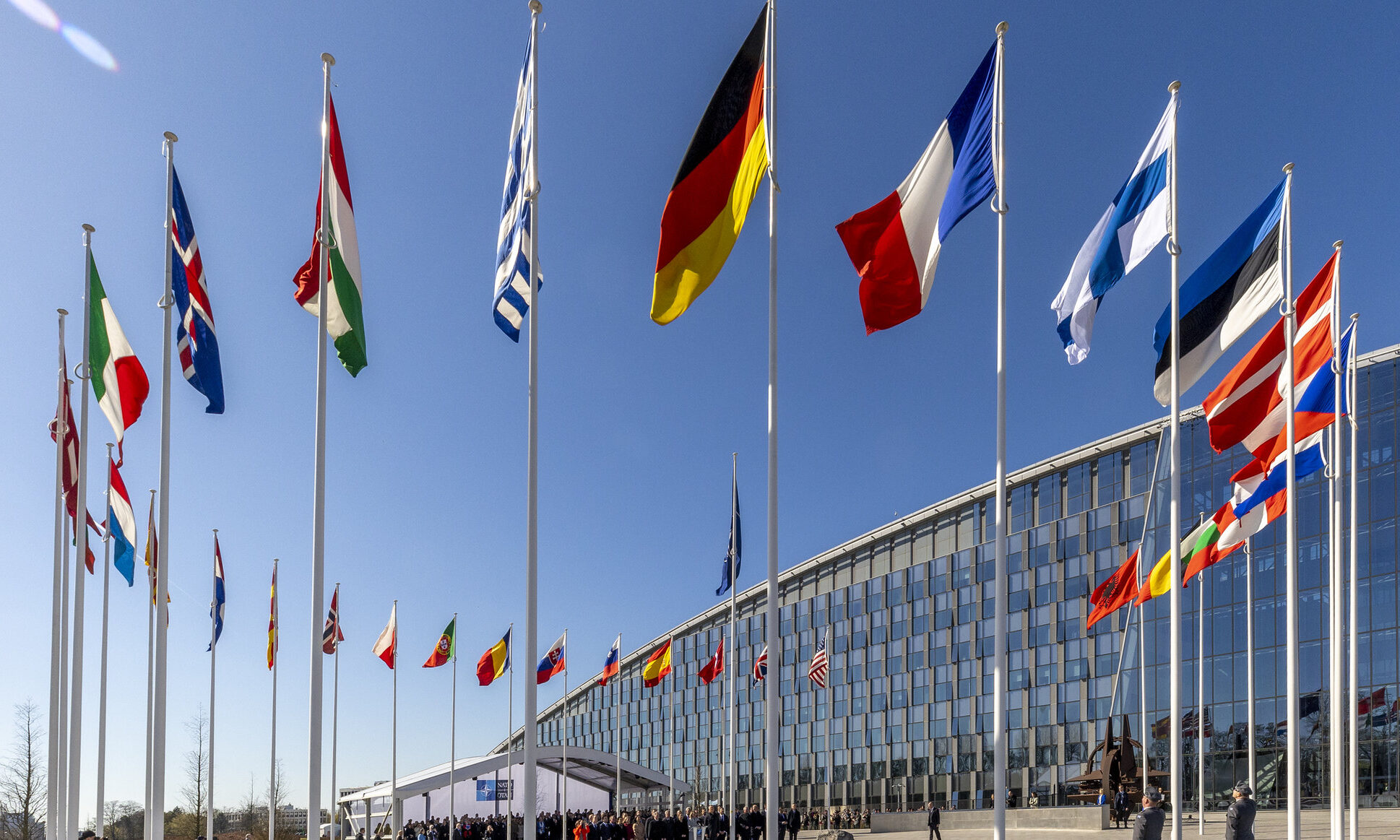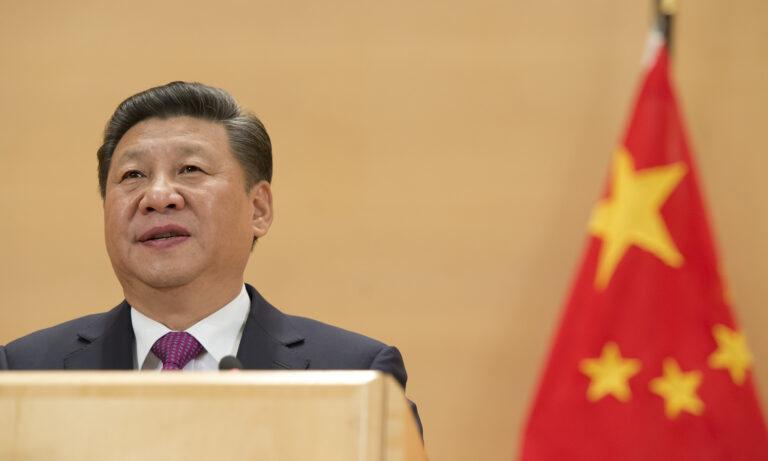Cat’s Paw of the Hegemon – Chinese Media Paints a Grim Picture of the Finnish NATO Membership

The accession of Finland to NATO has been presented as yet another evidence of increasing bloc confrontation by the Chinese commentariat, who are also concerned about its impact on traditionally good China-Finland relations.
When Finland and Sweden applied for NATO membership in April 2022 following Russia’s invasion of Ukraine, Russian reaction to the decision was predictably strong and negative. Meanwhile, China has remained almost silent on Finland’s application for and subsequent full membership in the alliance. To date, the only official statement was provided in May 2022 by Foreign Ministry spokesperson Zhao Lijian, who noted that the membership would “add new factors” to the relations between both countries.
A Critical Chinese Media Response
However, even as China has officially maintained a low profile on Finland’s NATO bid, China’s state-affiliated media has published rather extensively on the topic, as observed in a recent report analyzing Chinese and Russian narratives regarding Finnish and Swedish NATO processes (written by this author with Jerker Hellström, Santeri Kytöneva and Pekka Kallioniemi). The message emerging in newspapers and on websites such as People’s Daily, Global Times or Xinhua news is clear: Beijing doesn’t like NATO’s “northern expansion” (北扩) one bit.
The main argument in Chinese media discussions largely echoes Russian framing of the issue: Finnish NATO membership will undermine the security situation in Europe, while only serving the interests of the United States. China has been increasingly concerned about US attempts to develop and expand its network of alliances especially within the Indo-Pacific region, but also at the global level. Minilateral initiatives, such as the AUKUS or the Quad, have been at the forefront of attention, but the Chinese leadership has also observed NATO’s evolving Indo-Pacific agenda – which it sometimes calls NATO’s “Asia-Pacificization” (亚太化) – with growing unease.
Chinese media perceives the United States as generating significant leverage through its alliances, not primarily through their military assets, but as tools for conveying and amplifying political and economic pressure against China. Chinese official rhetoric has been railing against the so called “Cold War mentality” and “camp confrontation” (阵营对抗), warning China’s Asian neighbors that the expansion of US alliance structures into Asia could produce a Ukraine scenario in the Pacific region. In this context, Finland’s NATO membership represents yet another successful move by the United States to lure new members into its “hegemonic” circle of anti-China states.
Besides the larger context of global great power competition, China worries about losing an important partner in the European Union as Finland joins NATO. China’s relations with Finland have been among the best with any developed countries – a “model relationship” even, to borrow the words of Xi Jinping himself. Both states have maintained a positive and pragmatic approach, avoiding direct criticism of each other’s domestic affairs and allowing economic relations to prosper. Furthermore, Beijing has seen Finland as a possible gateway into the Arctic – the “main direction of the expansion of China’s national interests” according to China’s National Defense University, and a potential partner for economic, scientific, and diplomatic cooperative projects in the High North.
Finland, NATO, and Security Deterioration
For Beijing, Finland’s NATO accession means another win for US camp-building and a possible loss of another friend within the European Union. With nothing to gain but much to lose, Chinese state-affiliated media has attempted to spin Finland’s NATO membership as problematic both for Finland itself and for Europe as a whole.
First of all, the media narrative claims that the security situation is bound to deteriorate in Europe and perhaps even globally. All of the Chinese media observed in our report consistently frame the war in Ukraine in a similar fashion with Russia: The root cause lies in the United States, which exploited Russia’s temporary weakness during the post-Cold War years and pushed its alliances and “color revolutions” towards the east, driving Russia into a corner and shrinking its “strategic space.” The war, in Beijing’s view, therefore represents a US-led proxy offensive against a defensive Russia. Moscow is therefore said to be entitled to defend its “legitimate security concerns” (合理安全关切) with its “special military operation.”
The Chinese narrative consistently views Finnish and Swedish NATO membership against this frame. Instead of generating security for the Baltic region, the EU, or NATO as a whole, their membership will further intensify security problems, continuing the US-led eastern expansion that started after the end of Cold War. Chinese articles describe Finland and Sweden as economically and militarily strong countries, with high-end military capabilities and, in the case of Finland, a considerable wartime reserve of over 200,000 soldiers. An article in Chinese National Defense even warns that with their accession to NATO, the alliance will establish a formidable chain of containment that extends from the Arctic to the Black Sea. Furthermore, with Sweden and Finland, NATO will be able to monitor and control shipping in the whole Baltic sea, jeopardizing crucial sea lines for Russia’s second largest city, St. Petersburg.
The combined effect, the argument suggests, will tilt the regional military balance heavily in NATO’s favor, completing Russia’s strategic encirclement. This will in turn force Russia to counteract by increasing military capabilities in its northwest. Such a development is, according to the narrative, especially dangerous for Finland, no longer merely a “buffer zone,” but now a frontline state whose 1,300-kilometer border with Russia will become a new focus of NATO-Russia confrontation.
Chinese state media articles argue that this situation only benefits the United States. The narrative suggests that Washington has been hard at work raising alarm with its Russia threat narrative, and thus luring new members into its “hegemonic” structures. The ongoing war and NATO’s expansion give the United States a chance to tighten its grip on Europe, which is rapidly losing what little remains of its strategic autonomy. Finland, in a similar fashion, becomes a mere “cat’s paw” for the United States and its interests.
Changes in Finnish and Swedish strategic orientation are set against their former “neutral” foreign policy orientation in the Chinese narrative (though neither can really be regarded as being neutral since their accession to the European Union in 1995). Their neutrality was seen as benefitting the countries themselves and the Baltic region as a whole. Finland in particular is argued to have enjoyed working political and economic relations with Russia, acting as a bridge between the West and the East, before the current escalation. By becoming frontline states of NATO, both are bound to lose their strategic breathing space, as their foreign policies adapt to US interests.
Interestingly, Chinese publications do not completely strip Finland of its agency, as many articles correctly point out that Helsinki’s decision to apply for membership had overwhelming popular support. Some articles even point to historical and cultural reasons – especially Finland’s wars with Russia – why Finland, from its own point of view, might want to join the alliance. Nevertheless, NATO membership remains a bad decision in the eyes of Chinese commentators, and Finland is apparently unable to see the bigger picture, since Russia allegedly does not form a threat of any kind to Finland.
Increasing Camp Confrontation
While China has shied away from official comment on the issue, discussions in state-affiliated media provide an interesting window into Chinese thinking on Finnish NATO membership, and on the role of the alliance in international relations in general. The narrative emerging in Chinese state-affiliated newspapers and websites is surprisingly coherent, and argues that NATO’s northern expansion will further damage security in Europe and especially in Finland itself. While at the surface a European issue, NATO’s northern expansion represents creeping “camp confrontation”, which threatens security in China’s own neighborhood in the Indo-Pacific as well. Finally, the core argument also indicates Chinese concerns on losing yet another friend in Europe to the United States at a crucial moment of intensifying great power competition.
The views expressed in the article are author’s own and do not necessarily reflect those of either university, the Department of Defense, or the US or Finnish governments.
Written by
Matti Puranen
Dr. Matti Puranen is a Senior Researcher at the Finnish National Defense University and a Visiting Research Fellow at the INSS Center for the Study of Chinese Military Affairs at U.S. National Defense University.


